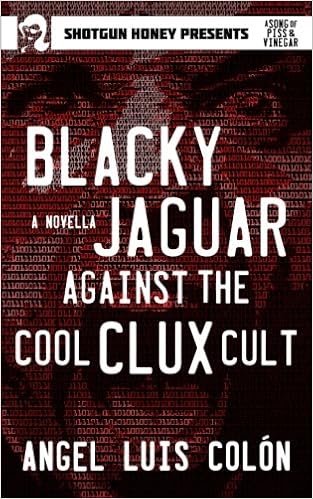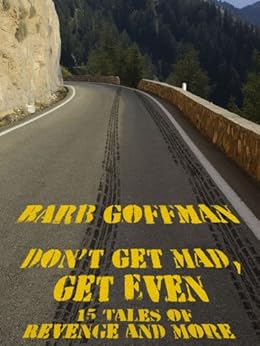.jpg) |
| Stirling Castle |
My family recently returned from a trip to Scotland, which we mostly took to attend the World Science Fiction Conference in Glasgow. Here are some highlights of the trip.
Stirling. We spent the first few days in Stirling, a city with about 50,000 people, and a ton of ghosts. I say that because it is one of those places where history kept piling up.
If you happen to be in England and you want to take
.jpg) |
| Stirling Beheading Stone. Step right up. |
your army into the Scottish highlands for a little light pillaging and looting you pretty much have to find a way past Stirling. That's why the battles of Stirling Bridge and Bannockburn loom large in the nation's history (and are inaccurately represented in Braveheart.)
 |
Oh, Stirling is also home to Bloody Scotland, the International Crime Writing Festival. Unfortunately for me, it doesn't happen until September.
Edinburgh. Truth is, we hadn't planned on visiting Stirling, instead expecting to spend a few days in the nation's capital, one of my favorite spots in the world. Then I literally woke up in the middle of the night.jpg) |
| Fringe Mob |
Glasgow. Eventually we went on to the main event. As I have said before, Bouchercon, the biggest event in our field, could hide in one pocket of Worldcon without being noticed. For example, you could fit ten Bouchercon dealer rooms in this year's Worldcon book room, and that doesn't even count the equally large space holding exhibits from universitiies, literary and scientific societies, and food trucks (yes, inside).
And this goes on for five days. Even friends much younger than me said it was exhausting. So here are a few of the exhausting categories of events.
* Readings. I attended a reading by John Scalzi who specializes in humorous science fiction. He was nominated for the Best Novel Hugo Award this year for a book with criminal connections. Starter Villain is about an unemployed journalist who unexpectedly inherits his uncle's business, as a James Bond-style evil genius. It also involves talking cats. Why not?
Scalzi read from his next book, When The Moon Hits Your Eye. Halfway through he reveals the book's insane major premise. Then he gave us a devilish smile and said "I wrote this! And I bleeping got away with it!" I look forward to reading the novel when it comes out.
I have mentioned Jo Walton before. She wrote the best alternative history mystery novel I have ever come across. She read part of an essay called "Why I Read," which was terrific.
* Table Talks, At a table talk, ten lucky attendees got to sit down for an hour chat with an author. I put in my name for several and was selected to meet with Ellen Datlow, a major editor of science fiction and horror anthologies. I learned a lot.
* Workshops. E.M. Faulds and T.H. Dray ran a useful workshop on reading out loud for authors. Everyone got to do a brief reading and get critiqued. My favorite comment was: "Emphasize the right words. No Shatnering."
* Panels. There were dozens, if not hundreds. Some I attended: Ancient Cultures, Religion in Science Fiction, and Alternate History,
I also saw one on Fairy Tales. This included a discussion of queer interpretations of the stories. ("The Little Mermaid" may have been inspired by Hans Christian Andersen's love for a man, for instance.) Then there's the eastern European tale "The Girl Who Pretended to be a Boy." Let's not tell certain parents groups about that one..jpg) |
| Me on the last day |
I also attended a workshop on Jim Henson. Someone pointed out that one of Henson's recurring themes is found family (think of Kermit gathering up his tribe in the Muppets Movie, for example).
During the question period an audience member told us that she had worked at the studio that made the Muppet Show and assured us that all those people loved each other just as much as you hoped.
She also said that she would often see a director talking about a scene with a puppeteer. Then the puppeteer would raise his arm and the director would start speaking straight to the Muppet.
By the way, some of the panels were videoed so we are still enjoying them at home.
* Volunteering. I spent an hour in a green room fetching drinks for panelists, and another handing out info packets to panelists and Hugo Award nominees. Each volunteer hour earns you a groat, a plastic card that most of the dealers accept as two pounds.
* Parties! Every night featured parties sponsored by committees hoping to have future Worldcons in their cities. (Next year will be in Seattle. 2026 in Los Angeles.)
I was also invited to a party for Flame Tree Press authors. They produce mostly horror and science fiction, plus collections of ancient legends ("Story-telling from the distant past to the future"), but I managed to sneak into their Chilling Crime Stories volume.
Okay, that's way more than enough. Next time, as you may have guessed, I will provide some words of wisdom from the panels.
.jpg)

.jpg)
.jpg)

































